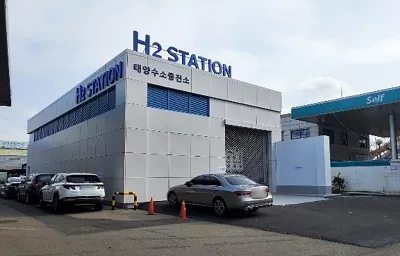Report: South Korea sees deterioration in hydrogen charging infrastructure over the past 3 years

South Korea’s charging infrastructure for hydrogen fuel-cell electric vehicles (FCEVs) has deteriorated in the past three years, according to the Korea Automobile & Mobility Association (KAMA). The number of hydrogen FCEVs per charging station increased to 203 in March this year, up 12% from 180 in March 2021, highlighting a lack of charging spots for hydrogen car owners.
Over the past three years, the country has seen a significant increase in hydrogen car registrations, with 34,872 units compared to 12,439 previously. However, the number of newly established hydrogen charging stations has not kept up, rising from 69 to 172 during the same period. This has created a mismatch between the increasing number of hydrogen cars and the limited charging infrastructure available.
Sejong, located 113 kilometres south of Seoul, experienced the most significant deterioration in its hydrogen charging infrastructure, with the number of hydrogen cars per station increasing to 224 from 53. In contrast, Gangwon Province saw an improvement in its charging infrastructure, with the number of hydrogen cars per station decreasing from 484 to 226. The uneven distribution of charging stations across different regions is a concern for the growing number of hydrogen car owners in South Korea.










